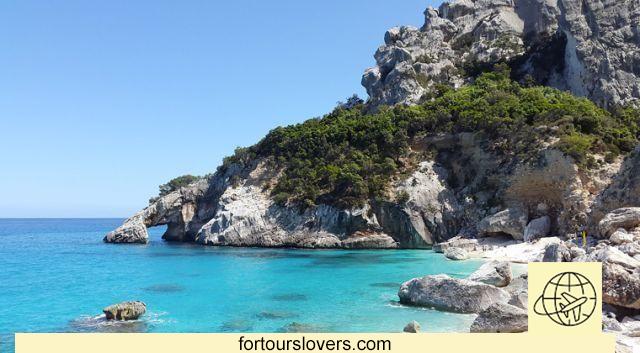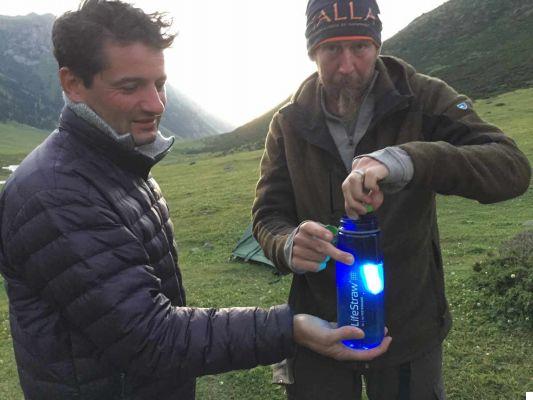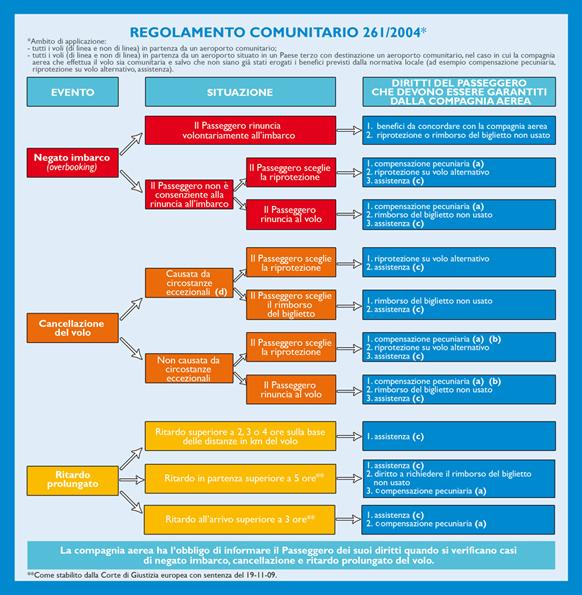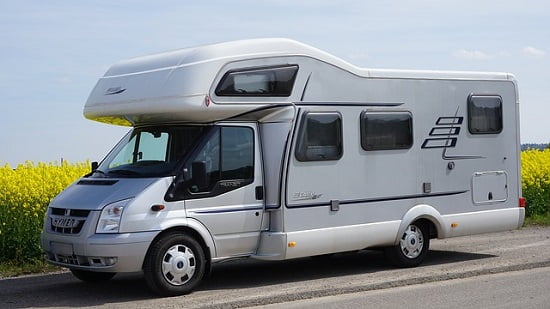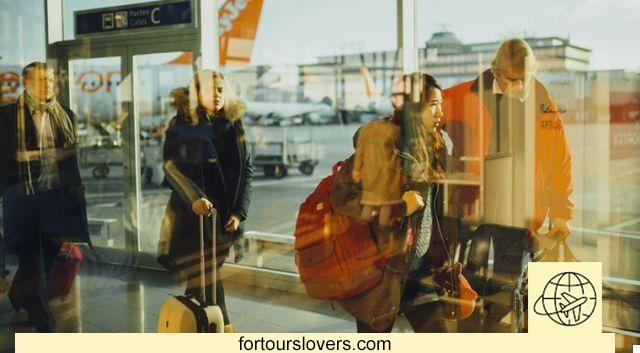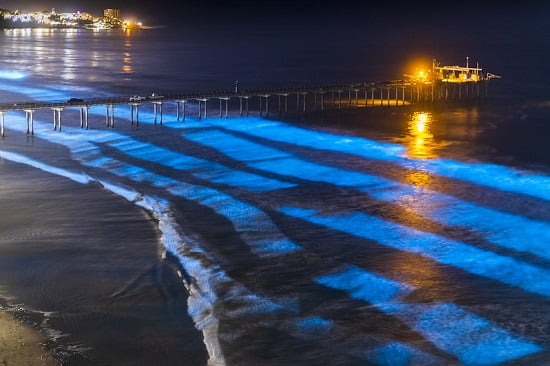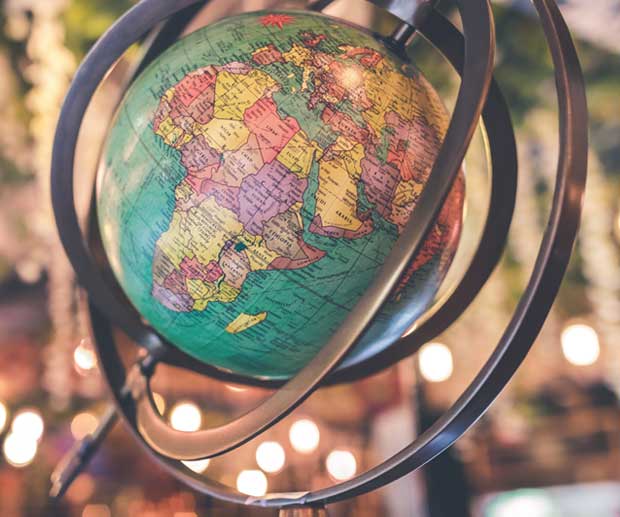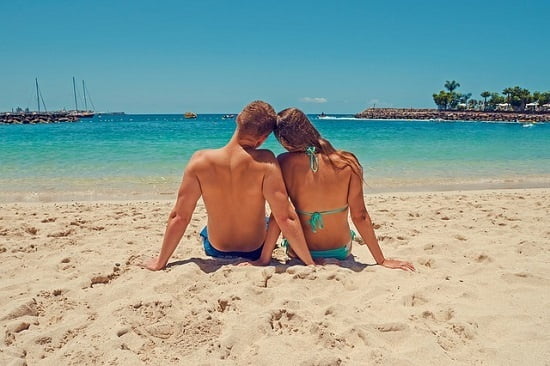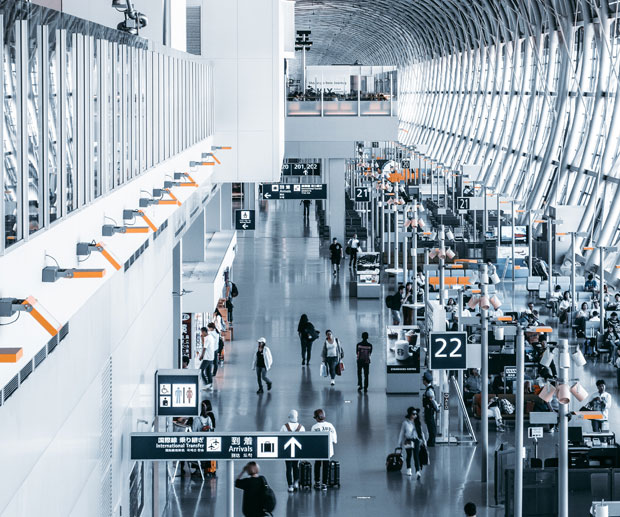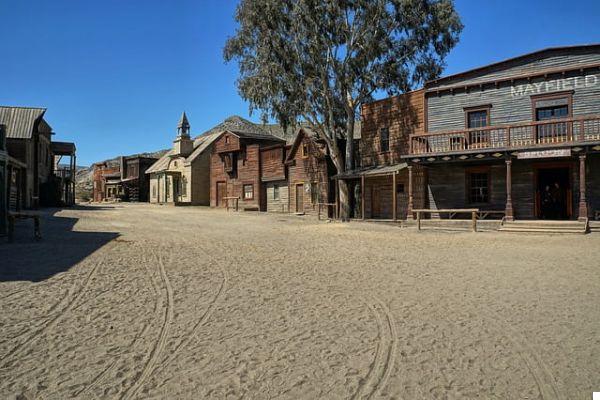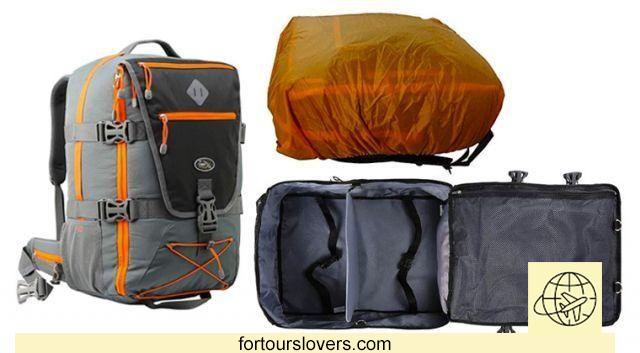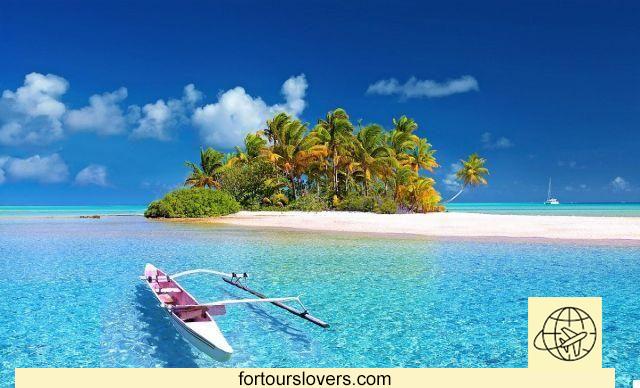Traveling with your own hands has many advantages: you save money, it's fun, it's free and it's good for you! One of the most beautiful and enjoyable moments of a DIY trip is undoubtedly the organization.
It is also true that it is the most delicate part and that I recommend starting a little in advance, especially if you are traveling in high season.
What you are reading is not a simple article, but a real guide, where I have included all the aspects of organizing a DIY trip .
There are so many variables to consider. We will look at all aspects of planning, from choosing the destination to writing the itinerary.
You will discover how to behave during the trip, budget and payment management, respect for cultures and everything that will allow you to live your adventure in complete safety.
Any information you find is the result of my experience and also of my mistakes.
Well, I don't want to give you any more advances, you just have to enjoy the valuable information I wanted to give you.
Choose the target
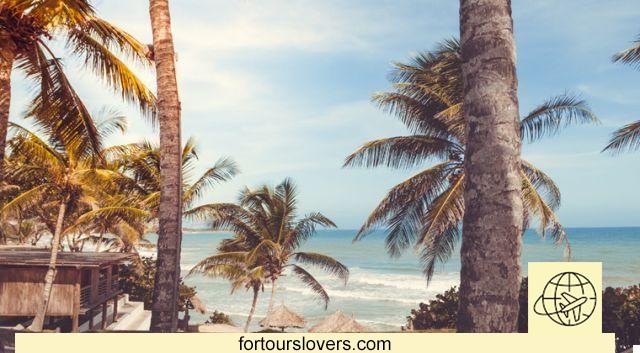
The first fundamental step in organizing a DIY trip is to choose the destination. There are so many wonderful places and it is not easy to decide.
Therefore, it is necessary to evaluate 4 aspects:
- The type of experience you are looking for;
- The time available;
- The time of the year;
- The budget.
By analyzing these 4 aspects, you will narrow down the options and be able to find your next destination.
A trip or a vacation can be geared towards various activities: discovering natural parks, learning about the art, history and culture of the country; it can be a time to relax after a year of work; or it can offer the opportunity to have fun and spend evenings full of nightlife; or it can have sports and adventures as a focus.
Therefore, we must understand what you need and find the place that best suits your needs. For example, if you love culture, spirituality, pristine beaches, nature and maybe even have a passion for surfing, Sri Lanka could be the perfect destination.
It is advisable to evaluate how many days you have available. If you have little time, it is preferable to choose destinations that are not too far away and to optimize your trips, even domestic ones.
But it is also essential to decide according to the time of year. There are countries that in some seasons must be excluded due to thunderstorms and monsoons. Many hotels may even be closed and some islands will not be accessible.
Finally, it is necessary to make calculations and evaluate the destination also on the basis of the available budget.
Certainly for destinations farther away it is necessary to calculate higher flight fares, but it is also true that several countries have a much lower cost of living.
Therefore, it is necessary to evaluate all possible expenses, food, lodging, travel and excursions, which greatly affect the total cost of the trip. We will see later how to calculate the budget.
Finally, you can draw inspiration, or as they now say "influence", from stories of friends, photos found on the Internet, travel diaries or documentaries . The important thing, however, is always to evaluate each place according to your preferences and not to choose according to the fashions or tastes of others.
Booking a plane ticket
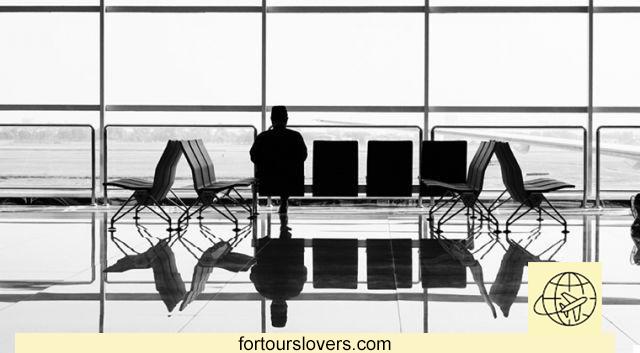
We come immediately to the cornerstone of DIY travel: once you have decided on the destination you must buy the plane ticket. It is easier and easier now to find a cheap plane ticket online, there are really many possibilities, from various search engines to low cost airlines.
I always recommend starting your research from price comparators, for example, starting with Skyscanner and get an idea of the costs and the main companies operating on a given route.
Warning: don't make the mistake of booking your flight without having any idea of your travel itinerary. In fact, it is very important to evaluate a rough route before purchasing the flight. Once you have done your initial research, you will have clearer ideas and will be better able to choose your arrival and departure airports.
For example, if you are planning a trip between Java and BaliInsteadof buying a flight back to Jakarta, consider arriving in Jakarta and departing from Bali.
On the blog you will find several articles on how to save on airline flights:
How to find cheap flights
Voli open jaw
I also recommend you download the free guide to finding low cost flights and follow the YouTube Channel where I post videos that will help you find the flight at the lowest price, as well as videos of my travels.
Buy a paper travel guide
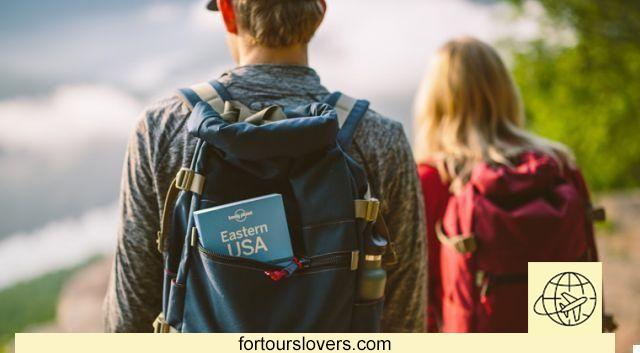 On the Internet you will find all the information you need to organize a trip independently, but do not underestimate the purchase of a classic paper guidebook. There are those who still prefer them to digital resources and those who, like me, exploit both solutions.
On the Internet you will find all the information you need to organize a trip independently, but do not underestimate the purchase of a classic paper guidebook. There are those who still prefer them to digital resources and those who, like me, exploit both solutions.
The beauty of a paper guidebook is to leaf through it, take it everywhere and read it during the trip; but it is also useful to find information during the planning phase.
There are several types, I usually choose the mythical one. Lonely Planet, although it has not always been perfect in the indications, is still an excellent starting point for collecting information: necessary documents, costs and schedules of the various attractions, means of transport, distances, accommodation or restaurant tips. Useful maps of the places you will visit are also included.
However, what is really important is to choose an updated and recent guide. Also, consider that the English translated version is getting old.
Do some research
In addition to the printed guidebook, you can (should) exploit the power of the Internet, consulting the various forums, Facebook groups.
Gathering information about the destination is the most important step in organizing the trip.
For me it is also the most beautiful. I love spending hours and hours on the couch with my laptop. I read all the forum threads, compare myself with other bloggers and watch YouTube videos to get an idea of where I'm going.
It is essential to know about aspects such as documents, visas, vaccinations, currency, etc. but we will see all these aspects in detail later.
This first phase of research will help you create a tailor-made travel itinerary based on your interests.
Writing the itinerary
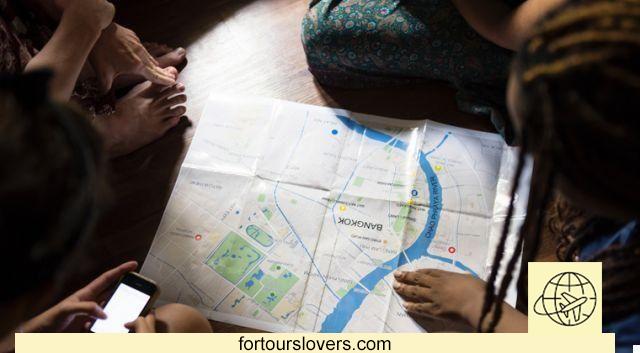
There are two ways to organize a DIY trip:
- Book and plan accommodations, tours and excursions prior to departure. More practical, but can be limiting
- Book only the first night and travel on an adventure. You have more freedom but it can be more stressful.
The important thing is also to evaluate the travel period, in high season it is better to book accommodation and various services.
For example, my partner and I went to Mexico during the Christmas vacations, we arrived in Mahahual at night without having booked and we had to settle for a real dive, maybe it was better to sleep on the beach!
Since that day we have preferred to choose the first option and travel more organized.
In any case, it is essential to create a rough itinerary, then you can always change it during the race.
To elaborate the perfect itinerary you will need to read and make a list of everything you are interested in: cultural visits, excursions, natural parks, beaches, villages, etc.
Keep in mind that it will not be easy to see everything your destination has to offer, especially if the country is large and time is short.
Therefore, you will have to deepen your research and make decisions, trusting your instincts as well .
At this stage it is important to study all aspects of the place,in particular distances, travel times and road conditions (also help yourself with Google Maps). It may happen that it takes up to 4 hours to cover 100 km.
Plan your itinerary by optimizing your movements, so as not to waste most of your time traveling. With a map in hand, divide your destination into zones and start planning the different stages and the best routes.
If you use public transport, for long trips you can travel at night, but calculate that you will arrive at your destination more tired. Of course, it also depends on the way you travel.
I generally try to organize myself like this:
The first 2/3 days a bit of relaxation, then I do kilometers and start with the various excursions. I try to leave the last days, sometimes even a week, for pure relaxation on an island paradise or in any case on some beautiful beach.
I also budget for possible unforeseen events. For example, in Indonesia we were stuck on the beautiful island of Karimunjawa for 3 days due to high seas. We had to change the legs of the trip on the fly and forgo excursions.
But remember you are still on vacation, try to take every little unforeseen event in the best way without getting too excited.
ALSO READ: How to create your travel itinerary
Booking accommodations

As I said earlier, it's up to you to decide whether to book accommodations first or choose them on the spot. But keep in mind that in high season you may not have many options and risk spending more on lower quality facilities.
There are endless possibilities to book accommodations online and often with free cancellation. I usually use the reservation and have always had a great time.
As for the type of structure, the choice is personal, I prefer the local hotel or guesthouse. However, if you need to cook, you will have to opt for a self-catering apartment.
In any case, check carefully all the features of the structure and always check if there are additional costs and what are the cancellation conditions. Also make sure that you are charged before your stay.
Finally, read the reviews that are always helpful to understand if the structure may be the right one for you.
But the most important thing when choosing accommodation is its location. It is necessary to study each place and choose the best area to stay according to your needs.
It is quite a demanding job, but what if you want a purely seaside vacation and you are 15 km away from the sea?
Fortunately there is ForToursLovers, on the blog in fact you will find many guides on different destinations with all the tips to find the ideal location.
Movements
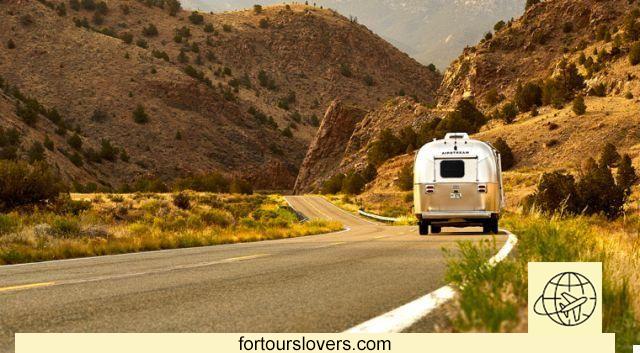
When writing your travel itinerary, it is useful to understand how you can move around to visit the destination you have chosen.
The options are varied:
- Rental car
- Public transportation
- Car with driver
- Internal flights
- ferry
In some countries it is not easy to find information about certain trips, so you will have to do your best in research. Look everywhere: blogs, travel forums, Facebook groups; ask the most experienced and those who have already visited that country.
Try also a contact local agencies, or if you have already booked the hotel, write them an email asking for detailed information. Often, the owners of the structure themselves could offer you drivers at a good price or give you some useful tips.
Also in this case the time you have at your disposal counts a lot, the less you have and the more you will have to optimize your movements.
If you plan to rent a car in high season it is better to book it in advance. If, on the contrary, it is low season or in any case it is not too touristy, you can rent the car directly on the spot, even better if you trust the local rental agencies, which generally offer advantageous rates. But make sure you have all the insurance coverage, preferably without deductible.
It is also important to evaluate the destination, in some countries driving is not recommended, either because of road conditions, reckless driving by locals or because there is left-hand driving. In any case, ask if it is necessary.the international driver's license and what type, there are two models.
The cheapest solution is generally to use buses and in some countries, like Mexico, they are also very comfortable and convenient, in others like Sri Lanka a little less and they run like crazy!
As for car rental, even for vehicles such as ferries, trains or buses, consider whether you need to book in advance.
What to do: Tours and Activities
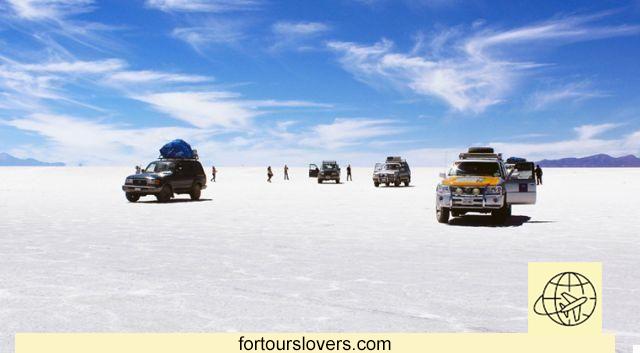
If you've researched and planned your itinerary, chances are you also have it with a list of attractions, activities or tours that you won't want to miss.
At this point, you should understand whether you should book them in advance or buy them on the spot. The same is always true, in high season it is best to book most things first. A good site for activities and tours is GetYourGuide.
Otherwise, you can always rely on local agencies, they often offer great prices andeven more authentic experiences. I recommend searching both TripAdvisor and Facebook pages, or generally the web, for reviews to get an idea of the service offered.
Local agencies will ask you for a deposit for the reservation, try to pay by bank transfer, card or even better with Pay Pall, the latter is the safest solution. Absolutely avoid Western Union for money transfer.
When to go
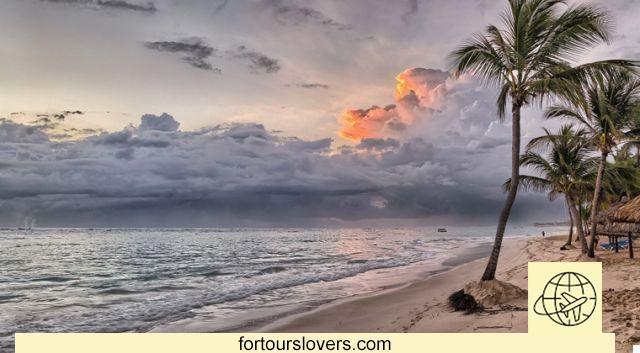
As we have seen for the choice of destination, it is important to consider when to go to a particular country. When organizing your trip, find out about the weather conditions, so as not to run the risk of storms and floods.
Also depending on the activities you want to practice or excursions you need to choose the best time of the year. For example, if you are organizing a safari in Tanzania, the months of January / February are particularly suitable for the wildebeest migration.
Also consider possible festivals, events that may only take place in certain months. For example, Sri Lanka's most popular festival, Esala Perahera, usually takes place between July and August.
However, keep in mind that during such important events the cities are very crowded, so it is advisable to book several months in advance.
Travel friends

If it is important to plan well where, when and how to go, it is equally important to choose "who to go with".
Therefore, it is essential to start with the right travel companions, so as not to risk ruining the trip, but also the friendship.
The main factors to consider when organizing a travel group are:
- Similar tastes;
- Shared rhythms and lifestyle;
- Mutual cooperation;
- Respect for others and their needs;
- Agree on the budget.
In general, it is important to involve all members of the group, everyone should be satisfied!
Money management: Currency exchange
If you are traveling outside the European Union you will have to deal with the local currency and choose the best way to manage your money.
There is no real rule, it always depends from country to country, so let's look at the various opportunities:
- Change currency before leaving (recommended for dollars);
- Change on the spot;
- Withdraw from ATMs and pay by card.
The general rule is to have multiple payment alternatives: for example cards of different circuits and some extra money for security.
Be aware that change at the airport is often inconvenient.
In some countries it is worth bringing a few dollars, especially to pay for entry or exit visas, or for major expenses such as local agencies or hotels. For example, in Tanzania the entry visa costs 50 $ or 50 €.
You can also pay by credit card. Generally in SEPA countries no fees apply, while in areas with currencies other than the Euro additional costs may apply. In addition, in some countries a minimum charge is required.
Where cards are not accepted, you must pay in local currency. So bring cash (euros or dallari) to exchange on the spot or withdraw at ATMs.
I often withdraw money directly from ATMs.
However, check with your bank if they charge fees, how much they are and what the monthly and daily withdrawal limits are. I am very happy with CheBanca, you can pick up anywhere at no additional cost.
Alternatively, I've heard very good things about N26 a completely virtual bank, no philiali. Everything is handled through the App and allows you to withdraw anywhere for free.
Be aware that in addition to any fees provided by your bank, some countries charge a fee (percentage or flat) for each withdrawal. For example in Thailand for each withdrawal you pay a fee of 200 baths (about €5).
Always check that there are international card symbols on the ATM, otherwise it means that they are not accepted.
Warning: remember to notify your bank before you leave, let them know your travel destination and duration to avoid the risk of the bank blocking your cards and make sure they are accepted. Also bring all your bank contacts to call them quickly in case of problems.
Inaddition to credit cards and ATMs, it may be useful to carry a PostePay card. In case of emergency, a family member or friend can top it up from Spain.
Last tip: try not to put different cards and cash in the same wallet. Then, if you lose one, you will always have the spare!
To recap: find out beforehand about the different exchange, withdrawal and payment costs and if possible prefer to pick it up on site, it is always better not to walk around with too much cash.
Visas required
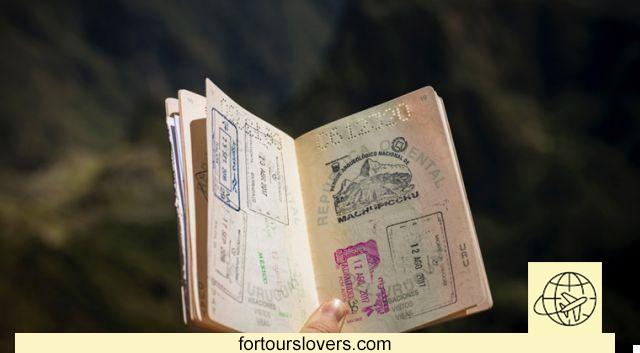
If you are planning a DIY trip outside Europe, you will most likely need an entry visa.
First, check whether you need to apply for it beforehand and, if so, how long it takes to obtain it.
In some countries it is possible to do this online in a few days, in others it is enough to fill in forms once you arrive at your destination.
However, it depends on the rules of the country and also on the purpose and duration of the trip.
I recommend you to consult the secure travel site or better yet the embassy website of the country you need to reach. The cost of the visa varies from one country to another.
Important: in most cases you cannot leave if you do not have a return ticket or, in any case, the "proof of departure" from the country you are traveling to.
Documents: passport
Also verify that your passport is valid and check all regulations in force in the country you are traveling to regarding your passport. In some states it must have a residual validity of at least 6 months from the date of arrival.
Telephony / Internet
When traveling it is important to be able to communicate at any time.
Fortunately, in Europe, roaming has been eliminated since 2107 and you can call and surf at the same cost as the domestic rate. So in any European country you will call or surf with the same phone plan you have in Spain.
But be careful because it is only valid if you use it to call Spanish numbers.
The situation changes if you are organizing an intercontinental trip, in which case you pay very high figures. I recommend that you first contact your phone company and find out if they offer any particular package.
But the best thing to do is to buy a local Sim. You will always be connected to the internet and will be able to call whenever you want. You can also use WhatsApp associated with your original number anyway.
insurance

When traveling, it's always a good idea to protect yourself. In a previous article we discussed Travel Insurance, and looked at what types of policies exist (health, trip cancellation, baggage) and the parameters to consider when choosing.
Of course, it is up to you to decide whether or not to take out insurance, but if you are traveling outside Europe it would be advisable to take out health insurance . Especially in those countries where the health system is not the best or in countries like the United States where medical care is very expensive.
There are actually many companies that offer travel policies, the one I usually use is Columbus, which has very competitive prices.
When signing the policy, read carefully all the clauses of the contract because there are often limitations.
On the other hand, remember that within the European Union you are entitled to health care under the same conditions as the citizens of the country you are visiting, on presentation of the EHIC, the European Health Insurance Card.
Budget evaluation
Budgeting is perhaps the most challenging and least pleasant phase of DIY travel arrangements. But it is very important and allows you to tackle your vacation consciously and smoothly.
First you need to consider all those fixed costs: insurance, air travel, visas, vaccinations.
The second step is to evaluate the accommodations and make an estimate of the costs according to the type of structure you will choose. If you book the accommodation beforehand it will be easier for you to evaluate the expense, in this case I recommend you to write down the expenses day by day.
Then it is necessary to establish the travel expenses: evaluate all the transfers also to and from the airport.
Then you need to analyze the costs of visits, excursions and entertainment.
Finally, evaluate food expenses: if you do not have a self-catering apartment, you will probably eat out every day and meal costs vary from country to country. Find out how much you spend on average and estimate daily meal costs.
Always budget for additional expenses for any unforeseen events.
Health and vaccinations
Vaccinations are a rather thorny issue, each traveler has his own opinion: there are those who do not skip one and protect themselves from any disease and those who prefer to avoid them.
In any case, it is advisable to ask if there are any mandatory vaccinations and which ones are recommended.
However,it is best to consult a doctor who specializes in tropical diseases, and at the same time try to find out as much information as possible about the health risks of the country you are going to.
In fact, the risks of contracting some diseases, such as malaria, also depend on the season and the area, in some seasons the possibility of contagion is very low.
However, before leaving, prepare a first aid kit with basic or more specific medicines depending on the trip you have chosen.
Safety
Safety is important!
Find out if there are specific health or political problems at your destination or if it is a destination at risk.
For safety reasons, provide your travel itinerary to a friend or family member. If you are traveling alone and going on an excursion, notify someone, including the staff at your lodging.
Electrical outlets
Not all electrical outlets are the same. Find out which model is used at your next destination and bring an adapter.
Respect
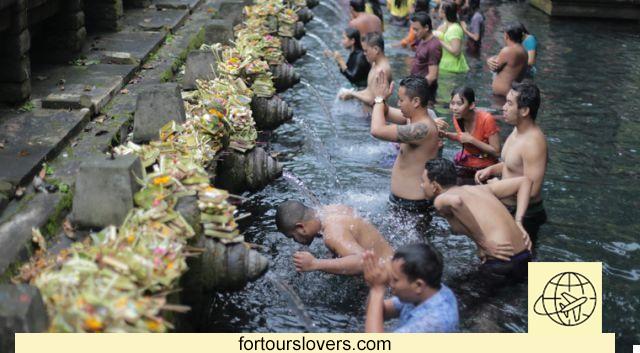
Being informed is an important step in planning your trip but also in knowing the customs and habits of the place you will be visiting.
Try to understand what can be done and what is forbidden and always behave with respect for the local population.
For example, did you know that turning your back to a representation of Buddha is disrespectful? And that in some countries it is forbidden to get Buddha tattoos?
Also try to learn a few words of the local language, not complete sentences, just a few words like thank you, good morning, how are you? The locals will certainly appreciate it, even if the pronunciation is not perfect.
Finally, try the local food and taste unfamiliar flavors, even better if you try typical street food!
luggage
Try to go with the minimum and don't overpack. If you can travel with hand luggage only, you will save money on the plane ticket and it will be more comfortable to travel.
However, remember that if you carry liquids in your carry-on luggage they should not exceed the 100 ml allowed.
Tip: carry some clothes in your hand luggage, in case the one in the hold gets lost!
Do-it-yourself travel: some tips
- Bring elastic socks for circulation during the flight and an inflatable neck pillow;
- Print out all necessary documents such as reservations or airline tickets. Or use mobile apps;
- Scan your most important documents, tickets, reservations, passports and leave them with a family member or friend. Also make a photocopy of your passports and take it with you;
- Take a small travel dictionary with you.
Conclusions
We have finally reached the end of the DIY travel guide. I tried to enter all the information necessary to plan a trip even for beginners. Obviously these are my tips, fruit of my experience and my way of traveling, the important thing is to organize yourself according to your needs.
If you think something is missing, write me privately or comment on the article.
I just have to wish you a good trip, enjoy it!




